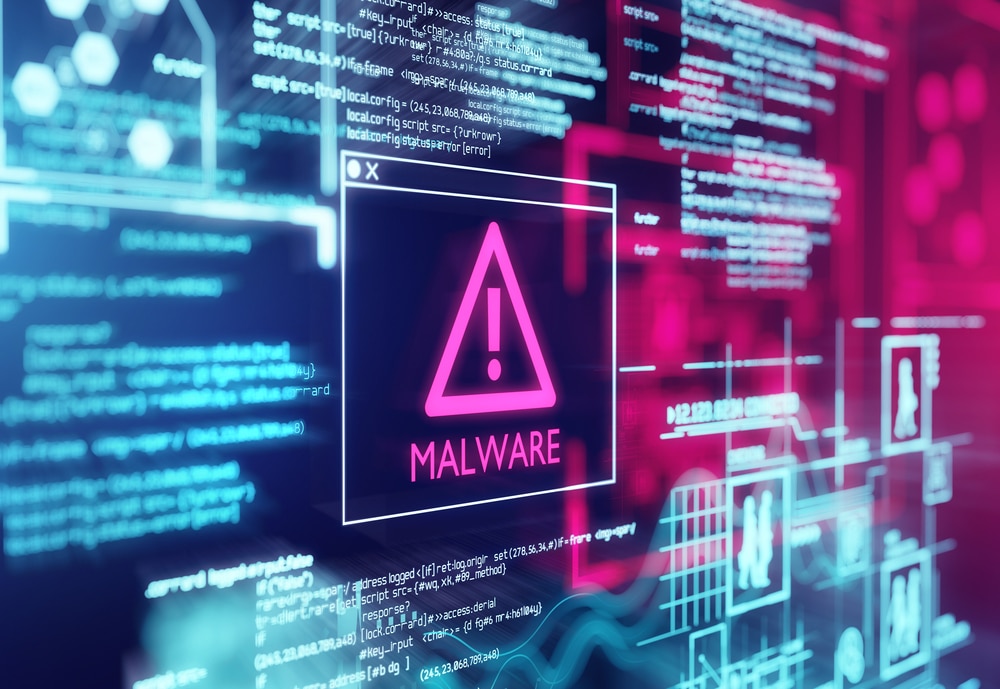
Gen Z targeted by AI-driven extortion scams
New research looking at high pressure extortion scams reveals that Gen Z is being particularly impacted by AI-powered threats. All mobile users are at risk, however, with one in three having been targeted by an extortion scam, often threatening to expose pictures or browsing history, and nearly one in five falling victim.
The research from Malwarebytes shows a distinct target profile for extortion. 69 percent of victims and 64 percent of targets are Gen Z or Millennial (compared 52 percent of victims and 40 percent of targets of other types of scams). 65 percent of victims and 60 percent of targets are male (vs. 48 percent/45 percent)

Google steps up the fight against scams with new tools and more education
Scams and fraud are an ever present threat on the internet and the rise of AI means that they’re getting harder to spot with the old giveaways of bad grammar and dodgy attachments largely eliminated.
Google is announcing a range of new tools and initiatives to help people remain safe online. These include improved app features, new account recovery tools and better education and awareness programs.

Open source malware up 140 percent
The latest OS Malware Index from Sonatype shows a 140 percent surge in open source malware as attackers target data and trusted dependencies.
The index is compiled from analysis of 34,319 open source malware packages discovered by Sonatype across major open source registries including npm, PyPI, Hugging Face, and more. This quarter’s count brings the total number of malicious packages Sonatype has discovered to 877,522 since 2019.

Recovering and rebuilding trust after a cyberattack [Q&A]
However good your defenses, cyberattacks can still happen. However, in many cases, the aftermath can be worse than the attack itself, as enterprises struggle to calm nerves and reassure staff, customers, and shareholders.
We spoke with Daniel Tobok, CEO of incident response specialist CYPFER, to discuss how organizations can recover from a cyberattack and why the leadership's response is vital.

Parents worry about children falling for online scams but fail to monitor usage
A new study of over 1,000 US parents with children at home between the ages of two and 20 finds that 35 percent of families have experienced a phishing scam via text, email or chat, and 25 percent have had a game or social media account hacked.
The report from Bitwarden finds that children as young as three to five are already using the internet, and 42 percent of parents in this age group say their child has unintentionally shared personal information. Nearly 80 percent of kids ages three to 12 have their own tablet, making device access nearly universal by early elementary school.

AI readiness helps companies gain an edge over their competition
The latest AI Readiness Index from Cisco is based on a study of over 8,000 AI leaders across 30 markets and 26 industries. It finds that what it calls ‘Pacesetters,’ about 13 percent of organizations for the last three years, outperform their peers across every measure of AI value.
Of these Pacesetters 98 percent are designing their networks for the growth, scale and complexity of AI compared to 46 percent overall.

Organizations face more AI-powered fraud attacks but privacy tools make detection harder
A new study from fraud prevention specialist Fingerprint finds 41 percent of over 300 fraud and technology leaders surveyed say their organizations are already facing AI-powered attacks.
These sophisticated threats, which range from generative AI phishing schemes to automated bot attacks, are creating a significant operational crisis. According to the report, 93 percent of fraud teams have seen noticeable operational impacts, with 38 percent of organizations citing higher costs from manual review and triage as a top business concern.

Lack of fiber infrastructure delays UK data center projects
A new study finds that 82 percent of UK data center operators say they have delayed site builds or expansion due to optical fiber availability. 95 percent of these operators say that access to new high-capacity fiber networks will now influence their expansion plans.
The survey, carried out by Censuswide for B2B connectivity company Neos Networks, included data center operators, enterprise IT leaders and local government stakeholders -- 100 of each. Across all three groups, there’s an overwhelming consensus that core fibre networks are the foundation of the UK’s AI infrastructure.

Who’s paying the price of cybercrime?
Cybercrime has become a global epidemic, with costs soaring across sectors and borders. But who’s paying the price and how has that changed since the turn of the century?
Researchers from vpnMentor have analyzed 25 years of FBI Internet Crime Complaint Center (IC3) data along with a review of major global incidents to discover the cost of cybercrime and how it’s evolving.

Infrastructure is having a moment -- why it’s finally getting the spotlight [Q&A]
AI, automation, seamless collaboration. These are the technologies that dominate headlines and drive business strategy. But beneath all the buzz, there’s a quiet but powerful shift happening: infrastructure is back in the spotlight.
Just look at Alphabet -- Google’s parent company -- which recently surprised investors by announcing it’s planning to spend a jaw-dropping $85 billion in 2025. That’s $10 billion more than they originally expected. And what’s fueling that massive investment? Nearly two-thirds of it is going toward the nuts and bolts of tech infrastructure like data centers, servers, and everything needed to power AI, the cloud, and our increasingly real-time digital world.

Can’t FB ATM, BB -- the social media acronyms that have us scratching our heads
The tech industry has always been fond of acronyms for various technologies, and the rise of social media has brought many more into everyday use. But how many of these have you shrugging your shoulders and saying IDK* what that means?
Website design agency ProfileTree has analyzed the monthly search volume for each acronym to see which are the most confusing and misunderstood.

The rise of voice -- is typing holding developers back? [Q&A]
Voice is in the process of replacing the keyboard in ways that could shake the foundations of how developers work, collaborate, and even think.
We spoke with Natalie Rutgers, VP of product at Deepgram, to find out how voice-first development tools are gaining traction and why companies that fail to adapt risk losing their edge -- and their top talent.

Ransomware attacks on healthcare businesses increase 30 percent
New research from Comparitech, based on data from its worldwide ransomware tracker, finds a 30 percent rise in ransomware attacks on healthcare businesses in the first nine months of 2025.
It recorded 293 ransomware attacks on hospitals, clinics, and other direct care providers -- a similar number to 2024 -- but there were a further 130 attacks on businesses operating within the healthcare sector, such as pharmaceutical/medical manufacturers, medical billing providers, and healthcare tech companies.

SMBs vulnerable to AI-powered cyberattacks and complacent about ransomware
A new report from Cork Protection looks at the security challenges facing small and medium-sized businesses (SMBs), backed up by comment from a range of industry leaders. Challenges include an asymmetric threat landscape, defined by the misuse of artificial intelligence and relentless exploitation of human vulnerabilities.
Among the findings are that AI-powered adversaries are launching automated, sophisticated campaigns at unprecedented scale. Also the financial fallout of a breach now extends far beyond ransom, often resulting in business-ending costs.

America embraces AI but some states show greater interest
Americans are increasingly turning to AI to save time, automate tasks, and boost creativity. Research from AI company Chatronix shows that the US is embracing the use of AI but that some states show more interest than others.
Analysis of Google Trends data between June 2024 and June 2025 reveals where searches for ChatGPT and Gemini are most concentrated. Scores from 0-100 represent the relative popularity of each search term by state, as a fraction of total Google searches in that region. Higher values reflect a larger share of interest, not higher total search counts.

